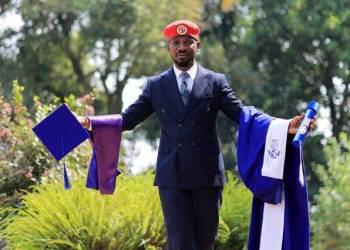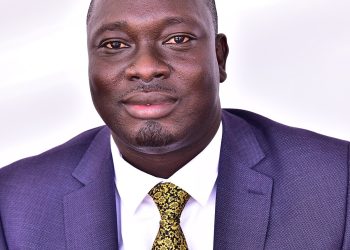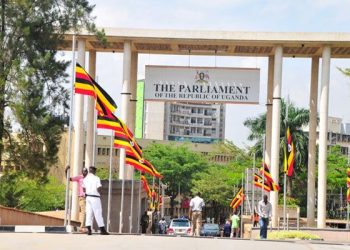President Yoweri Museveni has scoffed at accusations that his government was stifling civil liberties such as freedom of association,saying such freedoms would only be respected if they are not disguised as means of fanning chaos and instability.
Speaking at the Inter-Party Organisation for Dialogue (IPOD)summit that was held at Speke Resort Munyonyo on Wednesday under the auspices of the Netherlands Institute for Multiparty Democracy, Museveni vowed not to cave in to foreign pressure on the issue of rallies.
The inaugural IPOD summit brought that together leaders of political parties with representation in Parliament was graced by Democratic Party’s Norbert Mao, Justice Forum’s Asuman Basalirwa and Uganda People’s Congress’s Jimmy Akena.
“There is no problem with people assembling. The problem is that organizers want to hold the rallies in markets. As long as I am around, no one will cause chaos of the kind in France,” Museveni said in response to Basalirwa’s earlier concerns about rolling back civil liberties.
Citing intelligence reports to the effect that the Opposition had over the years attempted to use rallies, especially in urban areas to spark off the equivalent of ‘an Arab Spring’, Museveni challenged those organizing rallies to be well intentioned.
Arab Spring refers to a series of protests and demonstrations across the Middle East and North Africa that commenced in 2010,and eventually led to the ouster of tyrants in Tunisia, Yemen, Egypt and Libya. Museveni promised that going forward, the Police would not block any opposition rally so long as the venue was appropriate (far from markets and other places that could inconvenience other people) and the intention was not to fan chaos.
The President’s comments came in the wake of complaints by the main opposition party the Forum for Democratic Change (FDC) about Police blocking its rallies in Kasese and Rukungiri despite allegedly following procedures under the Public Order Management Act. FDC opted out of the IPOD summit as a protest over the aforesaid Police action.
Although the Constitutional Court had not been invoked to interpret Police’s role in management of public gatherings such as political rallies, the Opposition had always pointed to the provisions of the Public Order Management Act, which limit Police’s involvement to getting notified by the organizers. However, some Police officers, while dispersing political rallies, have on many occasions explicitly noted that their permission is required by organizers before rallies are held.
Although the right to assembly is not among the non-derogable rights in Uganda’s 1995 Constitution, it is an inalienable right not granted by the state as highlighted by the Constitutional Court in the Muwanga Kivumbi case. In the aforesaid case, the court declared unconstitutional a provision in the Police Act which had made it explicit that organisers of public gatherings such as political rallies had to seek Police permission
































































